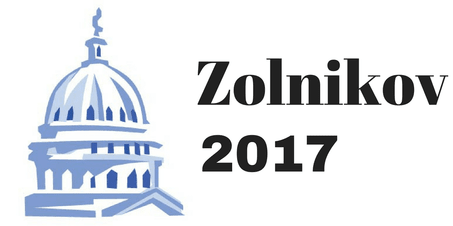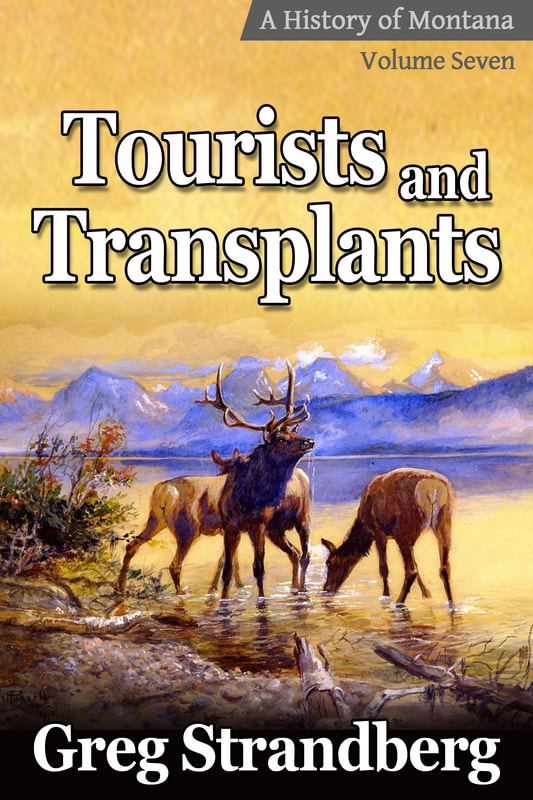
It’s a bit hazy so far, but it seems that Zinke will step down from the House sometime around January 20, perhaps even that day.
That means Steve Bullock has 85 to 100 days from that day to call a special election to replace Zinke.
Also, Bullock could choose an interim replacement for Zinke to represent Montana for the 85 to 100 days before that election takes place.
So this sets up all kinds of possibilities…for both parties.
I say both because the Republicans would be submitting a list of 3 names to Bullock that he would choose that interim replacement from.
Bullock might be smart to simply choose no one, as this will hinder any upcoming Republicans from building name-recognition.
And 3 months without House representation in Washington isn’t such a long time.
I feel Bullock will leave the seat vacant.
So…who will Dems choose in their special nominating convention to run for that special election?
The same goes for the GOP – who will they choose in whatever special nominating convention they hold?
Our political parties love these special nominating conventions – it’s a chance for the party brass to strut their stuff, exercise their leverage, call in old favors, and give payback for perceived slights that have happened in the past.
You and I will have nothing to do with it. We’ll simply be expected to vote for whomever the Dems and Republicans throw at us.
In that regard, this whole process stinks.
I want a say, damn it!
But I’ll have none, and neither will you.
Thankfully I have this platform to get my views out. Several other people around the state have their platforms as well, and the state newspapers and the state TV stations have theirs.
So that’s the only way the party brass is going to hear what the people may want, through those mouthpieces.
What will they do…will they listen to us…and will any names even be put forth?
I’d like to do that now, in this post.
First of all, who can win?
We know full-well that Denise Juneau and John Lewis can’t.
Juneau is all but in at the University of Montana presidency job, I think, while Lewis is now safely ensconced in Admin, perhaps with his eye on a 2020 gubernatorial run (need someone to replace Laslovich, right?).
So those two are out, and I hope they stay out.
Who does that leave us?
I put up two polls on Twitter earlier today, and you can see them here and vote on them:
Who will Dems try to fill Zinke's seat with? #mtpol
— Greg Strandberg (@gpstberg) December 13, 2016
Dark horse contenders for Zinke's seat #mtpol
— Greg Strandberg (@gpstberg) December 13, 2016
As you can see, few voted but so far it looks like most people want Brian Schweitzer.
I’m happy to see that.
He’s the only one that has a chance, in my opinion.
John Driscoll might be able to pick up some votes, as could Laslovich.
I don’t see either of them winning in what I expect will be a June special election, however.
Hell, for Driscoll it’d be his second special election…if he chose to go for it.
Well, that’s not quite accurate as the 1978 primary wasn’t really ‘special’…but we’ll get to that below.
Dirk Sandefur might even make a go of it, but I don’t think he’d be chosen.
I wouldn’t mind seeing Amanda Curtis run. I think she has the second-best shot at it.
Schweitzer of course has the best shot.
I can see Brian Schweitzer winning easily, no matter who the GOP throws against him.
And who might the GOP throw at him, or any other candidate for that matter?
I put up a poll on this as well, and here are a few names that I’d like to just run by you:
- Jeff Essman
- Greg Gianforte
- Art Wittich
- Daniel Zolnikov
- Bob Brown
- Debby Barrett
- Brad Johnson
- Debra Lamm
Those are just some names.
Any thoughts would be appreciated. I know news room staff members around the state are tossing names around too.
Mainly, this is exciting!
It’s not everyday that you learn there’ll be a special election in an off-year.
I love it.
I live for exciting days like today, days when I can get information about the state’s past out there.
I did that on Twitter earlier and now I’ll do so as well for all you history buffs.
A History of Montana's Special Elections
Now it’s time for a bit of history on Montana’s special elections and congressional vacancies.
Montana’s first special election was held in October 1864, which just so happened to be its first.
President Lincoln had appointed Sydney Edgerton as Territorial Governor back in June and in July Edgerton did a census and found that 20,000 were living in the territory.
That October, seven men were elected to the first Legislative Council.
Our next special election came in 1934.
FDR chose Senator Thomas Walsh as his pick for attorney general, but Walsh had died en route to Washington on March 2, two days before the inauguration.
Back in Montana, that meant Governor Erickson had the say in who would be going to the U.S. Senate next. This caused quite a stir, as senators had been chosen by direct election since Montana had deemed it so in 1899, fourteen years before the 17th Amendment was passed in 1913, allowing all Americans to do so.
Erickson ended up appointing himself, something that many Montanans didn’t like.
Come the primary that year there were five men and one woman. In the end incumbent Erickson came in third, taking just 22% compared to James Murray’s 25%. Coming in a close second was James O’Connor, who’d go on to have his own successful congressional career.
That fall in the general it was Murray against Republican Scott Leavitt. Leavitt’s role in Montana politics hadn’t quite been finished when he’d lost in 1932 and he put himself forth in the 1934 special election for Senate. Murray trounced him, 60% to 39%, with Socialist candidate John F. Duffy taking just shy of a full 1%.
Murray would go on to serve for years.
In 1969 a strange turn of events took place, and this proved fortunate for Montana’s Senator Metcalf.
Talk was in the air that Representative James Battin was going to run against Metcalf for the Senate. Perhaps some strings were pulled in Washington.
Either way, Battin was appointed a federal judge by President Nixon, was “nominated and confirmed on the same day,” and suddenly Montana was in need of a special election to fill his seat.
John Melcher did well in the 1969 special nominating convention, beating out Harold Gerke and Jerome Cate, both from Billings, as well as John McDonald of Belt. The Republicans chose William Mather, a “respected Republican legislator and lawyer.” Melcher beat Mather by 2,000 votes.
Melcher began serving in Washington on June 24, 1969. He was popular and got the job done, at least as far as those back home were concerned, and they reelected him three times, though not without competition.
By the late-1960s Montana’s constitution was about 80 years old. It’d come about in 1889 and by 1970 voters, through Referendum 67, signaled they were ready to update it.
In 1971 the 42nd Legislature then created the Montana Constitutional Convention Commission to assist the one hundred convention delegates that were chosen in a special election that November. The Constitutional Convention then convened on January 17, 1972, and had a $500,000 operating budget.
We had another special election in 1978.
Paul Hatfield served just a year on Montana’s Supreme Court before Lee Metcalf died in office. Looking for a qualified candidate that could fill the seat for a short time, Governor Thomas Judge appointed Hatfield to the seat.
Hatfield would become the second senator from Great Falls, the first being city-founder Paris Gibson, and began serving in the U.S. Senate on January 22, 1978.
It was an election year in 1978 and that meant Hatfield had had less than six months to campaign if he wanted to keep that seat. He went ahead and filed to run, though he had competition from Steve Shugrue, John Driscoll, and then-current U.S. House member Max Baucus.
In the end, Hatfield’s “campaign for reelection sputtered for lack of money and leadership.” Something that surely didn’t help was the resignation of the campaign director three weeks before the election. Baucus proved to be the most successful at convincing voters in the primary that June and won the seat as a result. Baucus took 65% of the vote to Hatfield’s 19%, with Driscoll taking 14% and Shugrue about 2%.
Hatfield stayed in the Senate until the election results were finalized. At that point he resigned so that Baucus could get a leg-up on all the incoming freshman, and perhaps have some of the experience from older, outgoing members rub off on him.
Hatfield’s last day as a Senator was December 12, meaning he served less than eleven months. He likely didn’t miss the place.
“The longer I am in Washington,” he wrote in a letter to Montanans on February 14, just about three weeks after taking his seat, “the more annoyed I am at how slow and insensitive the federal government is in helping Montana people.”
And now Montana is poised to have another special election.
It’ll be exciting.
Conclusion
Democrats in Montana need a win and they need it bad.
They could have that win with this special U.S. House election.
I sure hope they don’t fuck it up. I sure hope the party hacks and has-beens and never-were’s don’t rise up and botch this.
I suspect they will, however.
But that’s terrible thinking.
Right now it’d be best to give them the benefit of the doubt.
Maybe they’ll see that the old guard in the state can’t do it anymore, that new blood and new ideas are needed.
That’s why I hope we see a younger candidate…if we don’t see Schweitzer.
Again, though, I don’t see anyone besides Schweitzer winning.
The only other person with serious name recognition that has a chance is Amanda Curtis.
Is she up for another statewide congressional run after what happened in 2014?
I’m not sure she is. I think she might be happy to stay in the legislature.
And speaking of the legislature, let’s not have any barely-known candidates get chosen, please.
I’m talking people like Jenny Eck or Jon Sesso or Mary Sheehy Moe.
Those people don’t stand a chance in a statewide race where winning depends on them getting out of the cities and into the rural areas.
It’ll be tempting for the Democratic Hilltop crowd to throw John Lewis at us again, saying he has experience running a statewide congressional race.
Please, do not do this.
If anything, we don’t want to make this special election a repeat of 2014.
It could be a repeat of 2014 with Amanda Curtis as well…I dunno.
That’s why I keep coming back to Brian Schweitzer.
There is no one else, mainly because the Montana Democratic Party has spent years ignoring their bench.
What other candidates can you name?
None come to my mind.
I suppose putting up a future bench candidate would be an idea, building some name-recognition with them, but gosh…that’s almost like admitting defeat before you even get started.
Again, I come back to Schweitzer.
I’ll vote for him, and tons of Republicans will too.
He’s our best shot at getting Pat Williams’ old seat back.
Will Montana Democratic Party brass see it that way?
Time will tell.
Update (12/14)
Wow, this post is popular!
So many people are reading it that I thought I’d give a few quick updates.
First, Greg Gianforte is getting lots of calls from people telling him he should go for this spot.
UM political science professor Rob Saldin says that if Gianforte ran “he’d be formidable.”
I expect Tim Fox would be quite happy with that, as most money is on Fox going for governor in 2020…a year that Gianforte might try to give it a go again as well.
Getting Gianforte out of the way and into the House would help Fox.
For his part, Gianforte is saying he’s looking forward to getting some snow and spending time with family during the holidays.
Smart guy.
Personally, I like the idea of the younger Daniel Zolnikov getting the nod. He’s a Billings legislator that I’ve profiled before.
We’re also getting word that it will be a special election and that an appointment won’t be happening.
Mainly this seems to come down to a conflict with state vs. federal law, with the House expected to accept only the federal.
So that’s a special election.
James Conner over at Flathead Memo says that “the odds of a Democrat’s winning a special statewide election are perishingly low.”
He also mentions that “there will be a plentitude of Republicans seeking the job, and a scarcity of Democrats.”
I think he may be right on that.
Remember how many Dems stepped forward to go for Walsh’s seat?
Yeah – 3 of ‘em.
Sandefur, Bohlinger, and Curtis.
Amanda Curtis got it and now she’s a 'made man' when it comes to Democratic politics.
It’s not that the Party brass has to accept her, it’s that the people have already done so, overwhelmingly, with tens of thousands of votes.
Decades from now she’ll still have name-recognition.
That’s why smart Democrats will go for this seat, even if it means losing.
But does the Party want to lose the seat that way, or do they actually want to win it?
Can they win it?
James Conner doesn’t think so. I bet most people in the state don’t think so, including Democrats that are being honest with themselves.
I think Schweitzer can win it, but something tells me he’s not going to run.
So it’s up in the air, kind of like the House seat was set to be for 2018 as well.
Dems just have to figure out what to do about this a year earlier than they thought they would have to.
And please remember, what you or I think doesn’t factor into it.
This candidate will be chosen, we’ll be expected to swallow ‘em.
Maybe that’s a big reason why the Dems in Montana are doing so poorly.
As a resident of the state, I feel I’m being told what’ll happen a lot more than I’m encouraged to offer feedback or present ideas.
In that regard I expect we’ll see the same level of Party arrogance in this nomination that’s been present in Montana Democratic politics for years.
Doesn’t really make you excited to get out and vote, does it?



